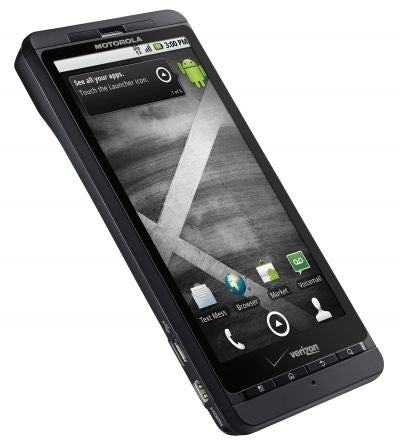Motorola hopes for Android tablet early next year

Motorola co-chief Sanjay Jha on Wednesday painted a future for the company that included beefed-up smartphones and a tablet computer running on Google-backed Android software.
Jha hoped Motorola would have an Android tablet computer ready early next year, he said while sharing thoughts at a Deutsche Bank Technology Conference in San Francisco.
"I will only develop a tablet if it is sufficiently compelling," Jha said during an on-stage chat. "Hopefully, that is early next year."
Jha has been counting on smartphones running Android to help turn around the Illinois-based company's flagging fortunes but didn't consider the latest generation of the mobile software ready for use in tablets.
"I see the tablet market as an opportunity; no cannibalization with smartphones," Jha said. "iPad is more an extension of iPhone than a migration of a Macintosh. I think that is a natural expansion for us."
Apple has sold millions of iPad tablet computers since the California company began selling them internationally in April.
"The convergence of mobility and computing is very important for us," Jha said. "There could be more form factors that are more smartphone-centric."
A priority in the Android "eco-system" is to improve the online marketplace for fun or functional applications that is key to the popularity of smartphones.
"The Marketplace experience on Android is good, it is not great," Jha said. "We are trying to rectify that situation. You will see us as an ecosystem very focused on that."
He also expected more powerful multi-core computer chips to be built into smartphones in the coming year to boost capabilities, speed and features.
Competition in the smartphone market promises to be intense as this year finishes. The iPhone continues to be a hot seller and a host of smartphones based on Windows Phone 7 should debut soon with the new Microsoft software.
BlackBerry maker Research In Motion is also due to release the latest generation of its mobile operating system.
"Nearly everyone in this business is clicking on all cylinders." Jha said.
The US remains the biggest market for high-end smartphones but Jha spoke of growing markets in China, India, and Latin America.
Jha noted that Motorola also makes TV set-top boxes and that it is "eager to participate" in an Internet-driven evolution of home entertainment that could involve routing digital content from smartphones to televisions.
"You've seen Google TV and Apple TV in that space," Jha said. "I think there are some very good opportunities there."
Motorola posted a six-fold increase in quarterly net profit in July and an optimistic outlook for its mobile phone division ahead of its separation next year.
Jha said at the time that demand was outstripping supply for the "Droid X," an Android smartphones seen as Motorola's answer to Apple's iPhone.
Motorola is selling most of its wireless network infrastructure business to Finnish-German giant Nokia Siemens Networks for 1.2 billion dollars.
Motorola plans to split its businesses in the first quarter of next year, separating products for consumers from its professional equipment division.
The mobile and home entertainment devices division will operate as Motorola Mobility.
The other company, Motorola Solutions, will consist of its enterprise mobility solutions and networks businesses, which include two-way radios, mobile computers, secure public safety systems and scanners.
Join our commenting forum
Join thought-provoking conversations, follow other Independent readers and see their replies
Comments
Bookmark popover
Removed from bookmarks